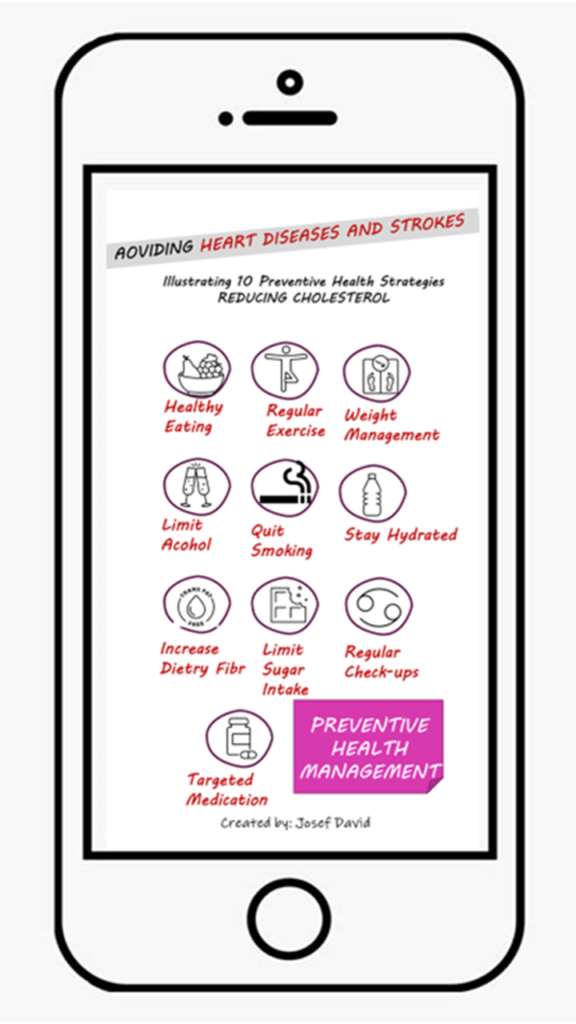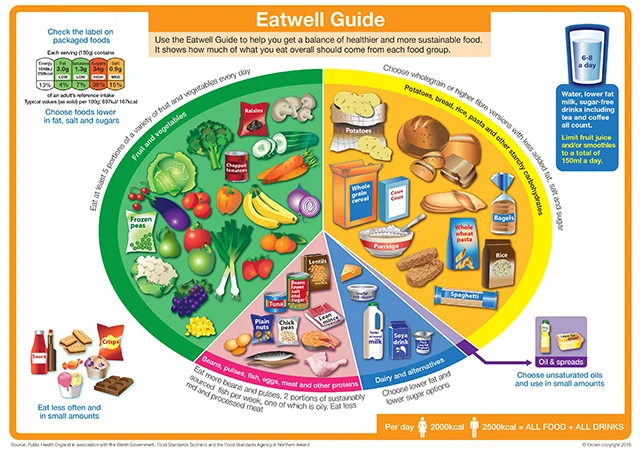What is Cholesterol?
Cholesterol is a waxy, fat-like substance that’s found in all the cells in your body. It is a type of lipid, which is a group of fats and fat-like substances. Your body needs some cholesterol to make hormones, vitamin D, and substances that help you digest foods. However, your body makes all the cholesterol it needs. Cholesterol is also found in foods from animal sources, such as egg yolks, meat, and cheese.
Why Cholesterol Must Be In-Check?
Maintaining healthy cholesterol levels is vital for good health. High levels of cholesterol can lead to a build-up of plaque in the arteries, known as atherosclerosis. This can increase the risk of heart disease and stroke. High cholesterol levels can be influenced by your diet and other lifestyle factors.
If your cholesterol levels are high, it’s important to bring them down to protect your heart and blood vessels.
Here are ten health strategies to help you do just that.
Illustrating 10 Health Strategies to Maintain Cholesterol Levels Under Control

1.Healthy Eating: A diet rich in fruits, vegetables, whole grains, lean protein, and healthy fats can help lower cholesterol levels. Limiting saturated fats and avoiding trans fats can also help reduce cholesterol levels.
2. Regular Exercise: Regular physical activity can raise high-density lipoprotein (HDL) cholesterol, the “good” cholesterol while lowering low-density lipoprotein (LDL) cholesterol, the “bad” one. Aim for at least 30 minutes of exercise most days of the week.
3. Weight Management: Losing excess weight contributes significantly to lowering high cholesterol. Even a small weight loss can help reduce cholesterol levels.
4. Limit Alcohol Consumption: Drinking alcohol in moderation or not at all will prevent high blood pressure and high cholesterol.
5. Quit Smoking: Smoking lowers your good cholesterol, increases your bad cholesterol and increases your risk of heart disease. If you quit, you can improve your HDL cholesterol level.
6. Stay Hydrated: Drinking plenty of water can improve your overall health and help your body eliminate excess cholesterol.
7.Increase Dietary Fibre: Foods like oats, fruits, vegetables, and legumes are high in dietary fibre, which can help lower cholesterol levels.
8. Limit Sugar Intake: Excessive sugar in your diet can lead to weight gain, high blood pressure and high cholesterol. Try to limit the amount of sugar you consume each day.
9. Regular Check-ups: Regular health check-ups will ensure that you keep track of your cholesterol levels and take necessary action if they start to rise.
10. Medication: If lifestyle changes aren’t enough, you may need medication to help control your cholesterol levels. Always take medication as prescribed by your doctor.
Conclusion and Next Steps
In conclusion, maintaining healthy cholesterol levels is a crucial aspect of overall health. It requires a combination of a balanced diet, regular exercise, weight management, and other lifestyle modifications. Regular check-ups are also essential to monitor progress and make necessary adjustments.
If you’re concerned about your cholesterol levels or if you find it challenging to make these lifestyle changes, it’s important to seek professional help. A healthcare provider or a dietitian can provide guidance and support to help you make these changes effectively and safely.
Remember that every step towards a healthier lifestyle counts in reducing cholesterol levels and improving heart health. Start small and gradually incorporate more healthy habits into your daily routine. It’s never too late to start making positive changes for better health.
